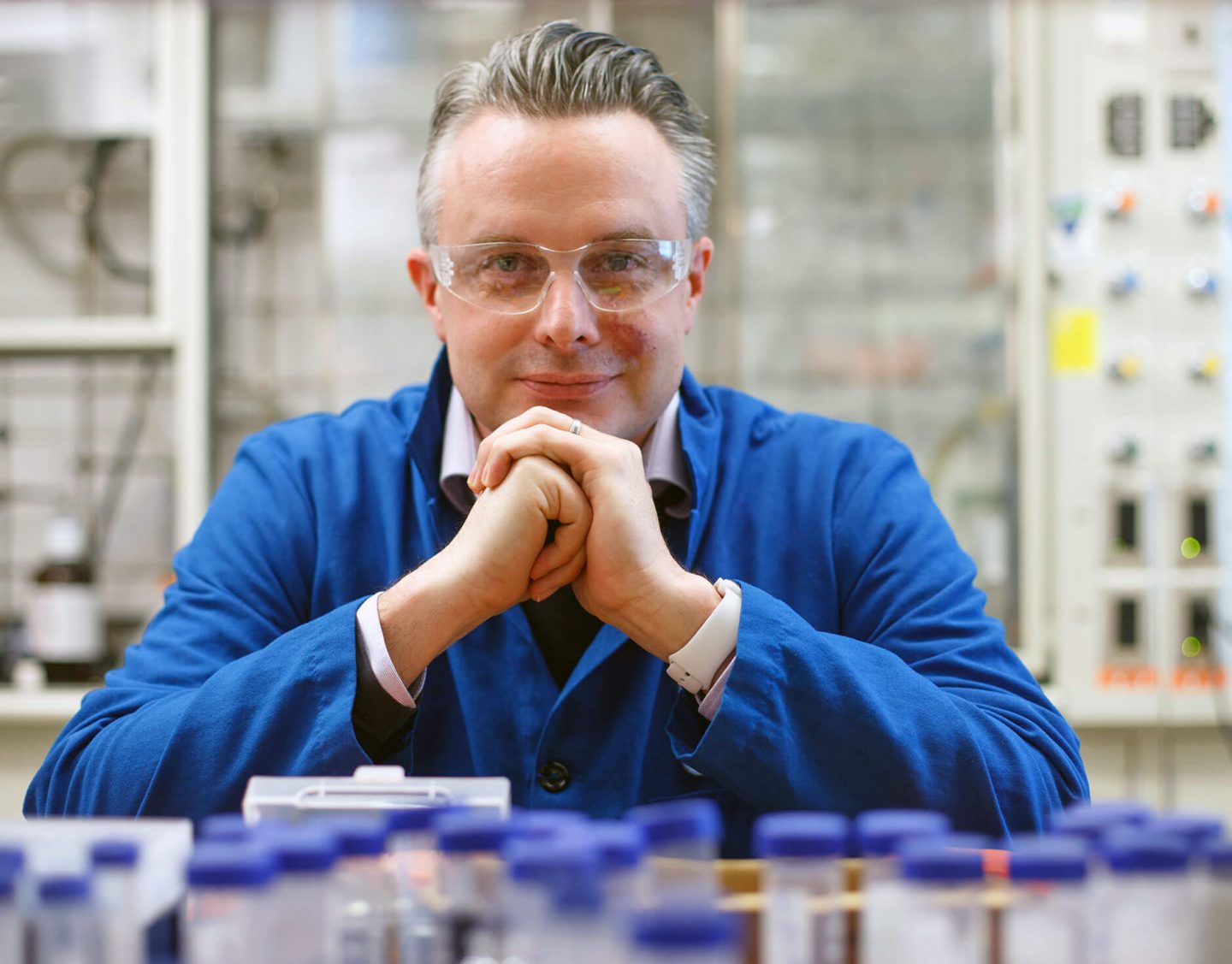ALS: Amyotrophic Lateral Sclerosis
Scripps Research gets to the root cause of ALS with the goal of getting patients moving again.
ALS is an invasive, relentless and deadly disease.
Get CuriousOur scientists are mobilizing innovative strategies to change its course.
Amyotrophic lateral sclerosis (ALS), also known as Lou Gehrig’s disease, is a progressive neurological disease in which toxic proteins accumulate in the brain, killing nerve cells that control motor function. Onset often involves muscle weakness or stiffness. As the disease progresses, patients lose the ability to walk, speak, swallow and breathe. Up to 20,000 Americans have ALS at any given time. From the time of diagnosis, a patient’s average life expectancy is two to five years, with about 10 percent living more than a decade. Those aren’t acceptable outcomes for us at Scripps Research.
The few therapies available to ALS patients today only treat symptoms of the disease; none address root causes. We’re determined to change that, both by learning more about the biological culprits of ALS and advancing medicines that change the course of disease. For example, our scientists are targeting a specific form of misfolded RNA (a protein critical to carrying out genetic instructions) that is implicated in ALS. Long considered “undruggable,” RNAs are now being decoded by Scripps Research, which is moving a roster of anti-RNA compounds toward clinical studies. At Scripps Research, our goal is to stop ALS in its tracks—and get patients moving again.

Innovative Treatments for a Complex Disease
-
New Drugs
Tafamidis, our FDA-approved drug, stops toxic misfolded proteins from accumulating in organs. We’re applying this approach to ALS.
-
New Strategies
An antibiotic that increases lifespan in roundworms while preventing protein build-up is receiving scrutiny from our researchers.
-
Teamwork
To speed discovery of a cure for ALS, our scientists collaborate with leading researchers across the nation.
-
High-throughput Drug Screening
We use our world-class library of 12,000 compounds proven safe in humans to identify new drugs for ALS.